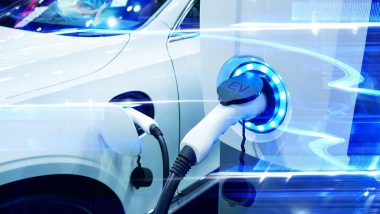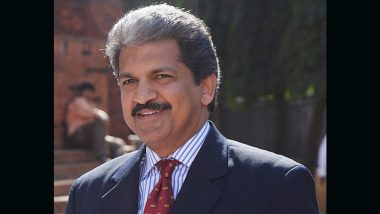Global warming endangers our health, jeopardizes our national security, and threatens our lives. The Intergovernmental Panel on Climate Change (IPCC) recently released a report that the world is entering the “red zone”, that we are danger close scenario. It has been established that man is one of the greatest contributors to global warming. To curb the greenhouses that is man-made the transition to Electrical Vehicles (EV) is paramount. Philipp Kindt and Evgeny Astakhov managing partners of Atlas Ventures funded OCBC Securities to see where EV investments is going.
The landmark IPCC study warns that key temperature limits will be broken in just over a decade. The report "is a code red for humanity", according to the UN. However, scientists say the catastrophe can be avoided if the world acts fast. The hope is that humans make impactful cuts in everyday life to cut greenhouse gases. The IPCC states that man-made carbon emissions come mainly from our vehicles and contributes to approximately 80% of greenhouse effects.
According to the Union of Concerned Scientists USA (UCSUSA) personal vehicles are a major cause of global warming. Collectively, cars and trucks account for nearly one-fifth of all US emissions, emitting around 24 pounds of carbon dioxide and other global-warming gases for every gallon of gas.
UN Secretary General António Guterres said: "If we combine forces now, we can avert climate catastrophe. But, as today's report makes clear, there is no time for delay and no room for excuses. I count on government leaders and all stakeholders to ensure COP26 is a success."
The issue of sustainability and addressing the climate risk was featured prominently in Singapore’s Deputy Prime Minister Heng Swee Keat’s Budget 2021 speech - budgeting the Singapore dollar (SGD)30 million- over the next 5 years to support EV related initiatives. It will narrow the price differential between EVs, and conventional vehicles powered by internal combustion engines (ICE); and increase the petrol duty rates by 10-15 Singapore cents per liter, effective immediately. The budget 2021 speech provided an indication that the Singapore government is ready to lead the way in creating a green, live able and sustainable city for generations to come.
With Southeast Asian governments panning to back EVs Atlas Ventures founded OCBC Securities to gauge and test the market. Searching beyond the borders of Singapore, Kindt and Astakhov believe that the demand and resources for EV technology will continue to rise globally.
According to Bloomberg New Energy Finance (BNEF), the report stated that improved batteries, more readily available charging infrastructures, and price parity with ICE vehicles will be the major drivers for the demand in the future. People are realizing day by day that changes need to be made if we are going to continue to lie on this planet.
Already Shell (NYSE: RDS.A) made its foray into EV charging with “Shell Recharge” stations – a first for Singapore and Southeast Asia. This new service allows drivers to charge their cars “on the go” at its service stations. The Shell Recharge is priced at SGD $0.55 per kWh1 and are compatible with most electric vehicles in Singapore[1]. The service will be available at 10 Shell petrol stations in Singapore by October, this year or about 20% of its retail network in the city-state, the company said in a statement.
South Korea's Hyundai Motor Co (KS:005380) has started recently on construction of a R&D center in Singapore that will house a small-scale electric vehicle production facility. Speaking at the groundbreaking ceremony, Singapore Prime Minister Lee Hsien Loong said the facility may produce up to 30,000 electric vehicles (EVs) annually by 2025 and represents an investment of S$400 million ($295 million).
Singapore is a densely populated city-state and one of the world's most expensive places to own a car. It controls vehicle population through a system of bidding for the right to own and use a vehicle for a limited number of years[4]. A mid-range car in Singapore can typically cost four times the price of an equivalent vehicle in the United States. However, the demand for vehicles and especially EVs are in the country and region is only growing.
Journalist Christopher Tan an admirer of EV technology noted that Singapore grants EV owners up to SGD 20,000 ($15,000) in tax breaks, and that drivers would save over $10,000 in petrol charges over 10 years.
Singapore is breaking into the world’s EV sector which will help fight global warming. OCBC Securities backed by Atlas ventures, has provided detailed data explaining why now right time is to invest in EV technology and areas where raw materials for the batteries are being mined.
Here is OCBC Securities Analysis:
It is estimated that by 2024, battery pack prices will go below the US$100/kWh on a volume weighted average basis, driven in part by the introduction of new cell chemistry technology and manufacturing equipment and techniques, as seen in the graph below:
The study finds that EVs are expected to hit 10% of global passenger vehicle sales by 2025, rising to 28% in 2030 and 58% in 2040. Electric car sales are expected to jump from 3 million vehicles in 2017 to 23 million in 2030, according to International Energy Authority (IEA).
In terms of air pollution and greenhouse gas emissions, electric cars and trucks are often cleaner than even the most efficient conventional vehicles on the market. When we compare, battery electric EVs greenhouse gas, it is similar to a conventional ICE getting 100 miles per gallon.
When batteries become chargeable exclusively with renewable electricity like solar power or wind, charging and operating an EV can be nearly emission free[2]. All signs point that EVs, and its tech will be the way of the future. OCBC Securities information shows that EV technologies are not only a safe investment for your money but for humanity as well.













 Quickly
Quickly




















